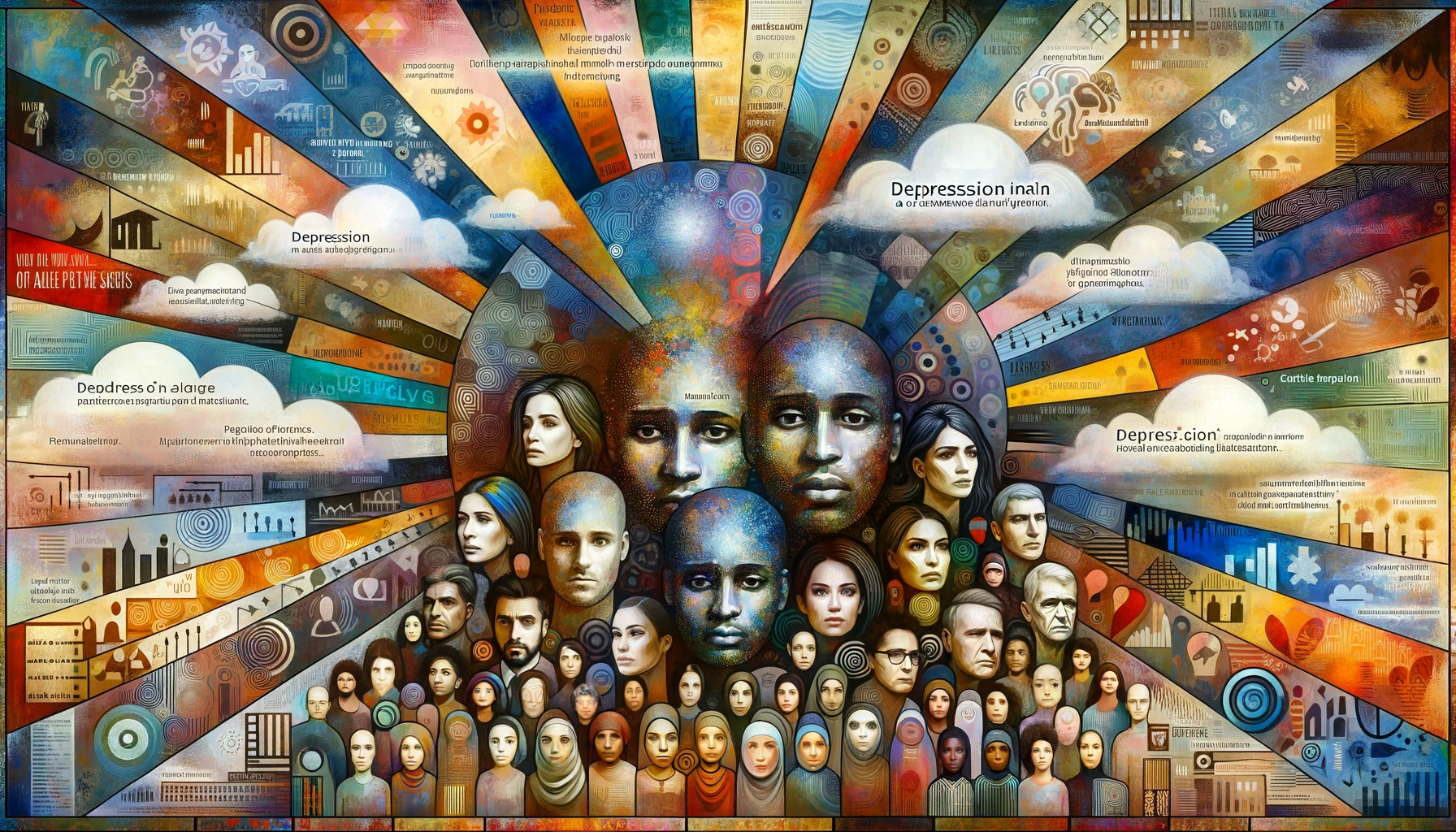Introduction: Depression is a common mental health disorder affecting millions worldwide, yet its manifestation and treatment can vary significantly across different age groups, cultures, and socioeconomic backgrounds. This article aims to examine the multifaceted nature of depression within diverse populations, understanding its unique impacts and the variety of treatment approaches.
Understanding Depression: Depression is characterized by persistent sadness, loss of interest in activities, and various emotional and physical problems. It can significantly interfere with an individual’s daily functioning and is influenced by a combination of genetic, biological, environmental, and psychological factors.
Depression Across Age Groups:
- Children and Adolescents: Manifestations might include irritability, academic decline, and social withdrawal. Treatment often involves a combination of psychotherapy and family support.
- Adults: Symptoms often involve persistent sadness, fatigue, and changes in sleep and appetite. Adults might benefit from a combination of medication, psychotherapy, and lifestyle adjustments.
- Elderly: Depression in older adults is often associated with chronic illness and isolation. Treatment may require tailored approaches, considering physical health and social support.
Cultural Considerations in Depression:
- Symptom Expression: Cultural factors can influence how individuals express and perceive symptoms of depression.
- Stigma and Acceptance: Cultural stigma can affect the willingness to seek treatment and the type of treatments deemed acceptable.
- Therapeutic Approaches: Understanding cultural backgrounds is crucial in tailoring therapy to be respectful and effective.
Socioeconomic Factors and Depression:
- Access to Care: Socioeconomic status can significantly impact access to mental health care and resources.
- Stress and Environment: Chronic stress from socioeconomic hardships can increase the risk of developing depression.
- Treatment Adaptations: Considerations might include scalable community health approaches and accessible interventions.
Treatment Strategies for Diverse Populations:
- Psychotherapy: Including culturally sensitive adaptations of CBT, DBT, and other modalities.
- Pharmacotherapy: Medications may be used, considering genetic and cultural factors affecting drug metabolism.
- Community and Supportive Interventions: Engaging community resources and support groups tailored to specific populations.
Conclusion: Depression is a complex disorder that does not discriminate, but how it is experienced and treated can vary widely among different individuals and groups. Understanding these variations is crucial for developing and implementing effective, culturally competent, and accessible treatment plans. Ongoing research and awareness are needed to address the unique challenges faced by diverse populations in managing depression.

